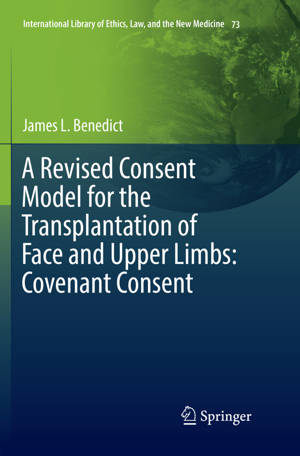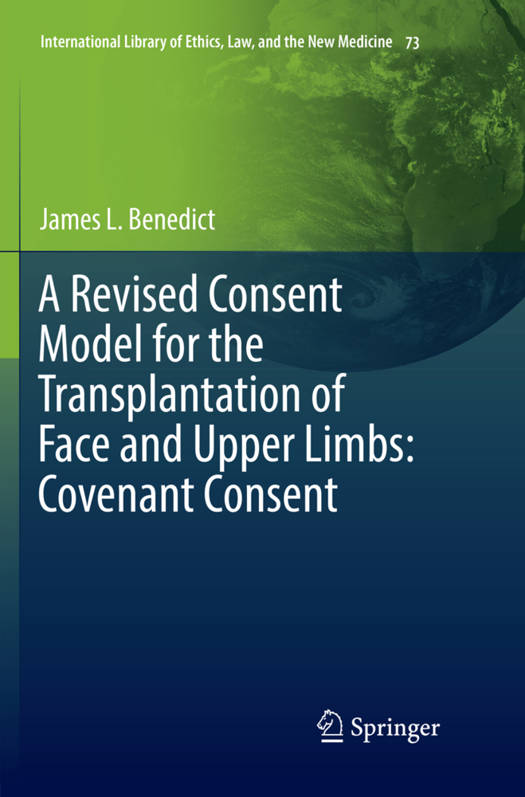
Door een staking bij bpost kan je online bestelling op dit moment iets langer onderweg zijn dan voorzien. Dringend iets nodig? Onze winkels ontvangen jou met open armen!
- Afhalen na 1 uur in een winkel met voorraad
- Gratis thuislevering in België vanaf € 30
- Ruim aanbod met 7 miljoen producten
Door een staking bij bpost kan je online bestelling op dit moment iets langer onderweg zijn dan voorzien. Dringend iets nodig? Onze winkels ontvangen jou met open armen!
- Afhalen na 1 uur in een winkel met voorraad
- Gratis thuislevering in België vanaf € 30
- Ruim aanbod met 7 miljoen producten
Zoeken
A Revised Consent Model for the Transplantation of Face and Upper Limbs: Covenant Consent
James L Benedict
€ 52,95
+ 105 punten
Uitvoering
Omschrijving
This book supports the emerging field of vascularized composite allotransplantation (VCA) for face and upper-limb transplants by providing a revised, ethically appropriate consent model which takes into account what is actually required of facial and upper extremity transplant recipients. In place of consent as permission-giving, waiver, or autonomous authorization (the standard approaches), this book imagines consent as an ongoing mutual commitment, i.e. as covenant consent. The covenant consent model highlights the need for a durable personal relationship between the patient/subject and the care provider/researcher. Such a relationship is crucial given the recovery period of 5 years or more for VCA recipients. The case for covenant consent is made by first examining the field of vascularized composite allotransplantation, the history and present understandings of consent in health care, and the history and use of the covenant concept from its origins through its applications to health care ethics today. This book explains how standard approaches to consent are inadequate in light of the particular features of facial and upper limb transplantation. In contrast, use of the covenant concept creates a consent model that is more appropriate ethically for these very complex surgeries and long-term recoveries.
Specificaties
Betrokkenen
- Auteur(s):
- Uitgeverij:
Inhoud
- Aantal bladzijden:
- 256
- Taal:
- Engels
- Reeks:
- Reeksnummer:
- nr. 73
Eigenschappen
- Productcode (EAN):
- 9783319859064
- Verschijningsdatum:
- 2/08/2018
- Uitvoering:
- Paperback
- Formaat:
- Trade paperback (VS)
- Afmetingen:
- 156 mm x 234 mm
- Gewicht:
- 381 g

Alleen bij Standaard Boekhandel
+ 105 punten op je klantenkaart van Standaard Boekhandel
Beoordelingen
We publiceren alleen reviews die voldoen aan de voorwaarden voor reviews. Bekijk onze voorwaarden voor reviews.











